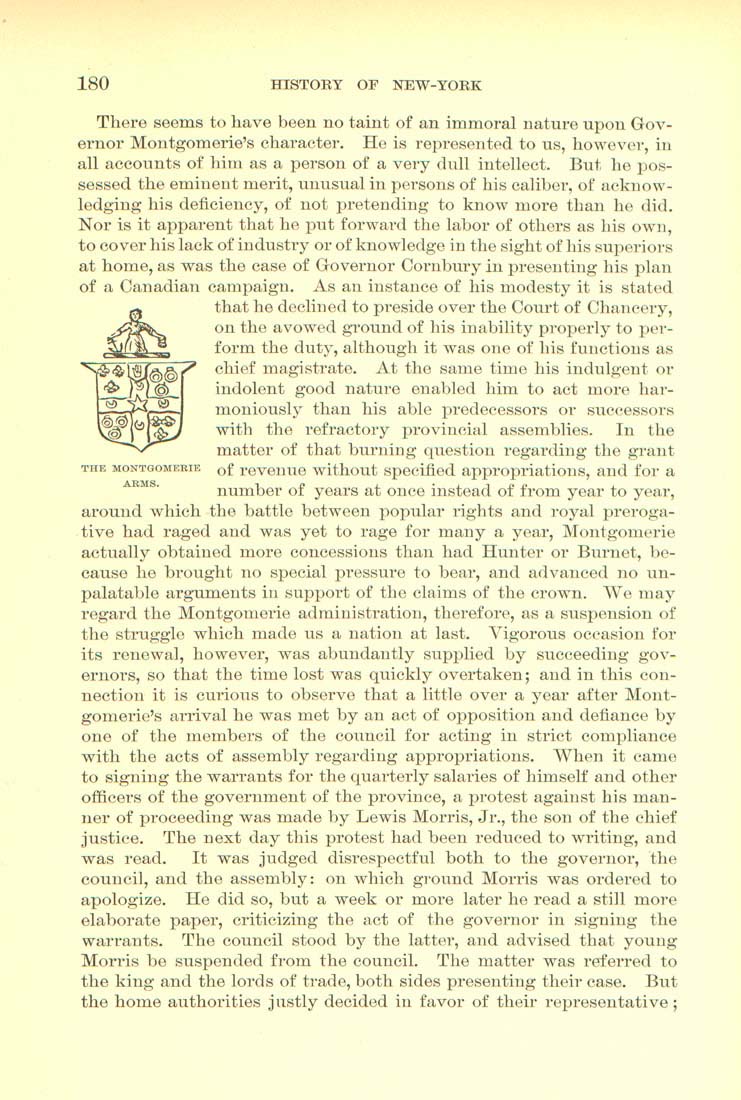180 HISTORY OE NEW-YORK
There seems to have been no taint of an immoral nature upon Gov¬
ernor Montgomerie's character. He is represented to us, however, in
all accounts of him as a person of a very dull intellect. But he pos¬
sessed the eminent merit, unusual in persons of his caliber, of acknow¬
ledging his deficiency, of not pretending to know more than he did.
Nor is it apparent that he put forward the labor of others as his own,
to cover his lack of industry or of knowledge in the sight of his superiors
at home, as was the case of Governor Cornbury in presenting his plan
of a Canadian campaign. As an instance of his modesty it is stated
that he declined to preside over the Court of Chancery,
on the avowed ground of his inability properly to per¬
form the duty, although it was one of his functions as
chief magistrate. At the same time his indulgent or
indolent good nature enabled him to act more har¬
moniously than his able predecessors or successors
with the refractory provincial assemblies. In the
matter of that burning question regarding the grant
THE MONTGOMERIE ^f revcnuc wlthout specified appropriations, and for a
number of years at once instead of from year to year,
around which the battle between popular rights and royal preroga¬
tive had raged and was yet to rage for many a year, Montgomerie
actually obtained more concessions than had Hunter or Burnet, be¬
cause he brought no special pressure to bear, and advanced no un¬
palatable arguments in support of the claims of the crown. We may
regard the Montgomerie administration, therefore, as a suspension of
the struggle which made us a nation at last. Vigorous occasion for
its renewal, however, was abundantly supplied by succeeding gov¬
ernors, so that the time lost was quickly overtaken; and in this con¬
nection it is curious to observe that a little over a year after Mont¬
gomerie's arrival he was met by an act of opposition and defiance by
one of the members of the council for acting in strict compliance
with the acts of assembly regarding appropriations. When it came
to signing the warrants for the quarterly salaries of himself and other
officers of the government of the province, a protest against his man¬
ner of proceeding was made by Lewis Morris, Jr., the son of the chief
justice. The next day this protest had been reduced to writing, and
was read. It was judged disrespectful both to the governor, the
council, and the assembly: on which ground Morris was ordered to
apologize. He did so, but a week or more later he read a still more
elaborate paper, criticizing the act of the governor in signing the
warrants. The council stood by the latter, and advised that young
Morris be suspended from the council. The matter was referred to
the king and the lords of trade, both sides presenting their case. But
the home authorities justly decided in favor of their representative;
|








